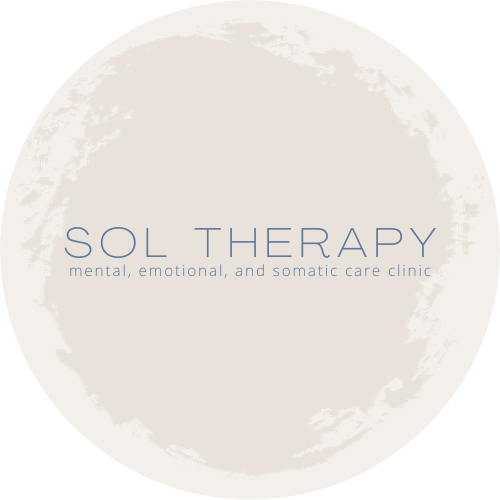Chronic Stress Management in Singapore

Chronic stress is a pervasive condition wherein one endures prolonged and severe stress without proper and effective respite, resulting in physical and mental exhaustion or breakdown. This relentless strain can steer in negative symptoms, encompassing heightened anxiety, panic attacks, and a profound detachment from life’s vibrancy.
This recurring state of stress often triggers the Fight-Flight-Freeze-Fawn response repeatedly, causing a continuous surge of stress hormones flowing through the body. This unceasing physiological reaction can exact a toll on both physical and mental well-being, giving rise to distressing symptoms and health complications.
A recent report by The World Health Organization (WHO) highlights the emergence of stress as one of the foremost contributors to global health issues and disabilities. The report underscores how chronic stress precipitates not only physical ailments such as heart disease, diabetes, Fibromyalgia, and Chronic Fatigue Syndrome but also mental health disorders, including Anxiety and Depression.
Addressing chronic stress necessitates a multi-faceted approach encompassing various effective treatment modalities with mind-body integration. Techniques for regulating the nervous system, practicing mindfulness, engaging in Breathwork and Movement Therapy, embracing Clinical Hypnotherapy, delving into Trauma-informed Psychotherapy, exploring Psychosomatic Therapy, and undergoing Biodynamic Craniosacral Therapy and Trauma-informed Somatic Psychotherapy are all integral components of this comprehensive strategy.
By promptly intervening and adopting these apt management techniques, one can navigate and mitigate the impact of stress, thereby fostering a more balanced journey through life. Through these methods, the disruptive force of chronic stress can be harnessed and channeled into a more balanced and manageable course.
Signs of Chronic Stress
Chronic stress can manifest in various physical, emotional, and cognitive symptoms, which can affect all areas of life. Common signs include:
Physical Symptoms
- Persistent fatigue or exhaustion
- Increased muscle tension, headaches, or migraines
- Digestive issues, such as nausea or stomach discomfort
- Insomnia or disrupted sleep patterns
- Elevated heart rate or palpitations
- Weakened immune system, leading to frequent illness
Emotional Symptoms
- Persistent feelings of anxiety or unease
- Mood swings, irritability, or frustration
- Difficulty feeling engaged or joyful in daily activities
- Overwhelm or a sense of emotional numbness
Cognitive Symptoms
- Trouble focusing or concentrating
- Difficulty making decisions or remembering tasks
- Negative thought patterns or a sense of hopelessness
- Heightened worry or racing thoughts
These symptoms indicate that the body is trapped in a continuous stress cycle that affects both emotional well-being and physical health.
Approaches to Manage Chronic Stress
Managing chronic stress requires a comprehensive approach that addresses both the mind and body. A variety of therapeutic modalities, each focusing on mind-body integration, can provide support in regulating the nervous system and restoring balance. Some effective approaches include:
Psychotherapy
Psychotherapy provides a safe and compassionate space to explore and process unresolved stress and trauma. It helps identify the root causes of chronic stress and offers strategies for building emotional resilience.
Mindfulness & Breathwork
These practices help regulate the nervous system, allowing for a sense of calm and relaxation. Deep breathing and guided mindfulness techniques create a foundation for returning to the present moment, helping to break the cycle of stress.
Movement Therapy
Physical movement, whether through gentle exercises, trauma-informed yoga, or other forms of body movement, releases built-up tension in the body and helps the nervous system return to a more balanced state.
Clinical Hypnotherapy
Hypnotherapy can gently support the process of reprogramming subconscious patterns that contribute to chronic stress. It works to release old habits and develop healthier, more adaptive responses to stress.
Biodynamic Craniosacral Therapy
This therapy focuses on gentle touch to restore balance to the nervous system. It can help release stored tension, promote relaxation, and enhance the body’s ability to regulate itself.
Psychosomatic Therapy
By exploring the connection between mind and body, psychosomatic therapy can help identify and release stored stress and trauma in the body, promoting healing and balance.
Trauma-informed Somatic Therapy
This integrative therapy works with the body to release stored tension, suppressed emotions, and past experiences, while providing a safe space for expression. It helps you understand your felt experience and promotes a state of calm and balance in the nervous system. By gently guiding the body to safely reconnect with sensations, this approach facilitates healing and supports the processing and release of trauma.
Lifestyle Modifications
Making small but impactful changes to your routine—such as prioritizing rest, improving sleep hygiene, and eating nourishing foods—can reduce the strain of chronic stress and support overall well-being.
Our Services
Psychotherapy and Counselling
Psychotherapy and Counseling for chronic stress provide a supportive space for clients to discuss and understand the underlying causes of chronic stress. By addressing thought processes, emotional triggers, and behavioral responses, one can develop healthier coping strategies and gain insight into their stressors, increasing resilience and greater control.
Breathwork and Movement Therapy
Managing chronic stress with Breathwork and Movement Therapy alone or in conjunction with Psychotherapy and Counselling, Clinical Hypnotherapy, or Trauma-informed Somatic Therapy combines intentional therapeutic breathing and customized gentle movements to alleviate chronic stress. These practices enhance oxygen intake, release physical tension, and promote self-regulation and relaxation. Connecting breath and movement can reduce stress-related muscle tension, improve mood, reduce fight-flight-freeze-fawn modes, and cultivate greater mind-body regulation.
Biodynamic Craniosacral Therapy
Biodynamic Craniosacral Therapy for chronic stress aims to release tensions and restore balance in the body, aiding chronic stress management. This therapy supports the body’s self-regulating mechanisms through subtle touch and gentle manipulations, reducing stress-induced physical discomfort and enhancing overall relaxation.
Clinical Hypnotherapy
Clinical Hypnotherapy for chronic stress management employs hypnotic techniques to reframe and manage chronic stress. One can identify positive solutions, shift perceptions, reframe belief systems and thought patterns, and enhance relaxation by accessing the subconscious mind. This approach promotes a focus on solutions rather than dwelling on stressors, fostering a sense of calm and empowerment.
Trauma-informed Somatic Integration Therapy
Managing chronic stress with Trauma-informed Somatic Integration Therapy acknowledges the impact of trauma on chronic stress. This approach combines talk therapy with somatic techniques to understand and address stored trauma in the body, honoring an organic process. Releasing tension and stored emotions can gradually alleviate chronic stress symptoms and achieve greater safety and emotional well-being.
Neuro-alignment Program
The Neuro-alignment Program utilizes evidence-based neuroplasticity principles to retrain the brain’s response to chronic stress. One can reshape neural pathways by engaging in specific brain retraining and mental exercises, reducing stress reactions, and improving emotional resilience. This program empowers individuals to regulate their stress responses better.
Restorative Session
Discover a moment of rejuvenation amid life’s chaos with our restorative session. Incorporating somatic insights, neural emotive regulation tools, intentional touch, breathwork, and movement therapy, this holistic approach offers a flexible experience akin to meditation. While not a replacement for clinical interventions, it provides a nourishing pause for inner connection and recalibration, empowering you with self-compassion and tools for resilience. Our private sessions focus on self-care, nurturing your being amidst life’s demands and fostering balance through moments of pause and self-discovery.
Psychosomatic Therapy
As a complementary support to Psychotherapy and Counselling, Clinical Hypnotherapy, or Trauma-informed Somatic Psychotherapy, Psychosomatic Therapy, a gentle touch approach, facilitates rest, recalibration, and harmonizing the mind, body, and nervous systems. This modality delves into the intricate interplay between the mind and body in managing chronic stress.
FAQs About Chronic Stress
1. What is chronic stress?
Chronic stress is a prolonged and intense stress response that occurs when the body and mind are unable to recover from continuous stressors. It often arises from unresolved stress that accumulates over time, and without proper intervention, it can lead to a breakdown in physical and emotional health.
2. Can chronic stress lead to physical health issues?
Yes, chronic stress can contribute to various health problems, including heart disease, digestive issues, fibromyalgia, chronic fatigue, and even autoimmune conditions. It is also linked to mental health concerns such as anxiety and depression.
3. How does integrative therapy help with chronic stress?
Integrative therapy combines various approaches to address the root causes of chronic stress, helping you navigate both emotional and physical stressors. By integrating techniques such as psychotherapy, somatic therapy, clinical hypnotherapy, biodynamic craniosacral therapy, and guided breathwork and movement practices, integrative therapy offers a holistic approach to working through stress. It provides a safe space to explore emotions, reframe negative thought patterns, connecting, processing, and understanding your felt senses, and regulate your nervous system. This comprehensive approach supports you in building resilience, restoring balance, and cultivating a deeper sense of calm and well-being.
4. Can lifestyle changes reduce the effects of chronic stress?
Yes, lifestyle changes—such as appropriate physical activity, better sleep hygiene, reducing alcohol and caffeine intake, incorporating nourishing and whole foods diet, and fostering a supportive social network—can significantly alleviate the symptoms of chronic stress and improve overall well-being.
5. How long does it take to recover from chronic stress?
The healing journey from chronic stress is unique to each individual and can vary in duration. Recovery is often not linear, and it requires ongoing commitment, patience, and daily practices to manage stress effectively. Consistent effort, along with the right support, can lead to meaningful progress. While it may take time to re-regulate your nervous system and build new coping mechanisms, with dedication and appropriate tools, recovery is possible, and balance can be restored.
6. How can I support someone who is experiencing chronic stress?
Supporting someone with chronic stress involves offering understanding, empathy, and patience. Creating a safe space for them to express themselves and encouraging them to seek professional help can be incredibly valuable in their healing process. Sometimes, offering practical support, like helping with manageable tasks, allows them the space to pause and better manage their overwhelm, giving them room to pause and focus on healing.
For more information on our services that offers therapy for Chronic Stress management in Singapore, please WhatsApp us at (65) 89422211 or email us at beinghuman@soltherapy.sg
"You are allowed to be
both a masterpiece and
a work in progress simultaneously."- Sophia Bush
